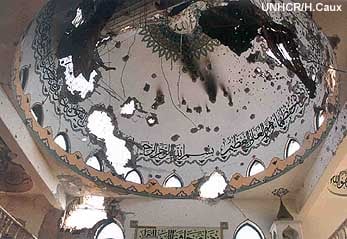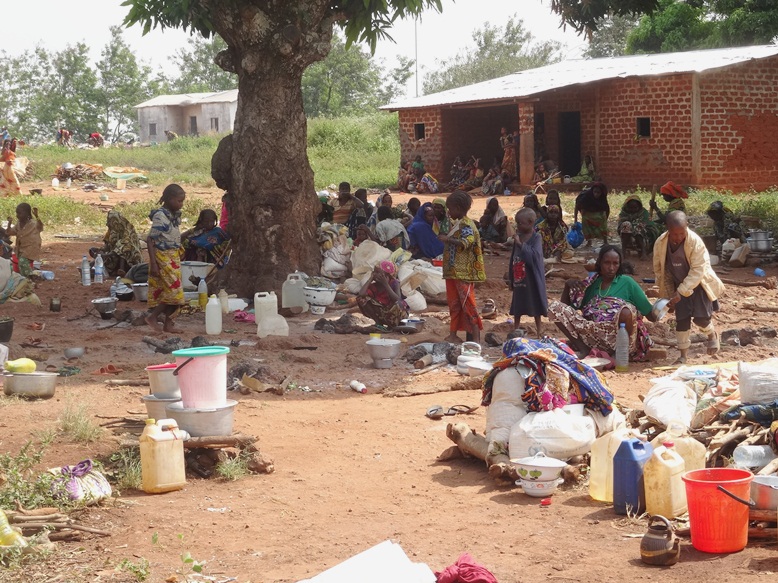New bus line linking ethnic communities starts service in Former Yugoslav Republic of Macedonia
New bus line linking ethnic communities starts service in Former Yugoslav Republic of Macedonia

SKOPJE, Oct. 23 (UNHCR) - In another effort to promote freedom of movement across volatile ethnic lines and sensitive checkpoints in the Former Yugoslav Republic of Macedonia, the U.N. refugee agency Tuesday opened a new bus line linking the Albanian village of Selce to the city of Tetovo.
UNHCR already operates four bus lines in Tetovo, the country's second largest city, as well as in the Kumanovo region, in an effort to foster confidence in the August 13 peace agreement. The accord called for an end to six months of fighting, the collection by NATO of rebel arms, and the enactment by Parliament of a package of measures granting increased rights to ethnic Albanians.
The bus line inaugurated Tuesday will transport workers and students from Selce, a village of some 3,200 ethnic Albanians, to Tetovo, located 60 kilometres west of the capital Skopje. Selce is located 10 kilometres north-west of Tetovo, where heavy fighting broke out during the six-month ethnic Albanian insurgency in the country.
The opening of the bus lines has allowed refugees and internally displaced people to return to their villages, the U.N. refugee agency said.
Since late June, around 60,000 people have returned from Kosovo to the Former Yugoslav Republic of Macedonia, but the rate of returns has slowed to a trickle of less than 50 persons a day over the past few weeks. The estimated 16,000 refugees who remain in Kosovo are apparently waiting for a promised amnesty law to be enacted before deciding to return home.
Meanwhile, the refugee agency continues its confidence-building programmes through visits to those regions affected by the conflict. UNHCR teams have so far visited 80 of the 91 villages affected by the recent fighting. On Monday, for example, the agency handed out 1,050 refugee packages in the village of Aracinovo 10 kilometres east of Skopje. The packages contain blankets, mattresses, hygienic kits, jerry cans of water and plastic sheeting.







